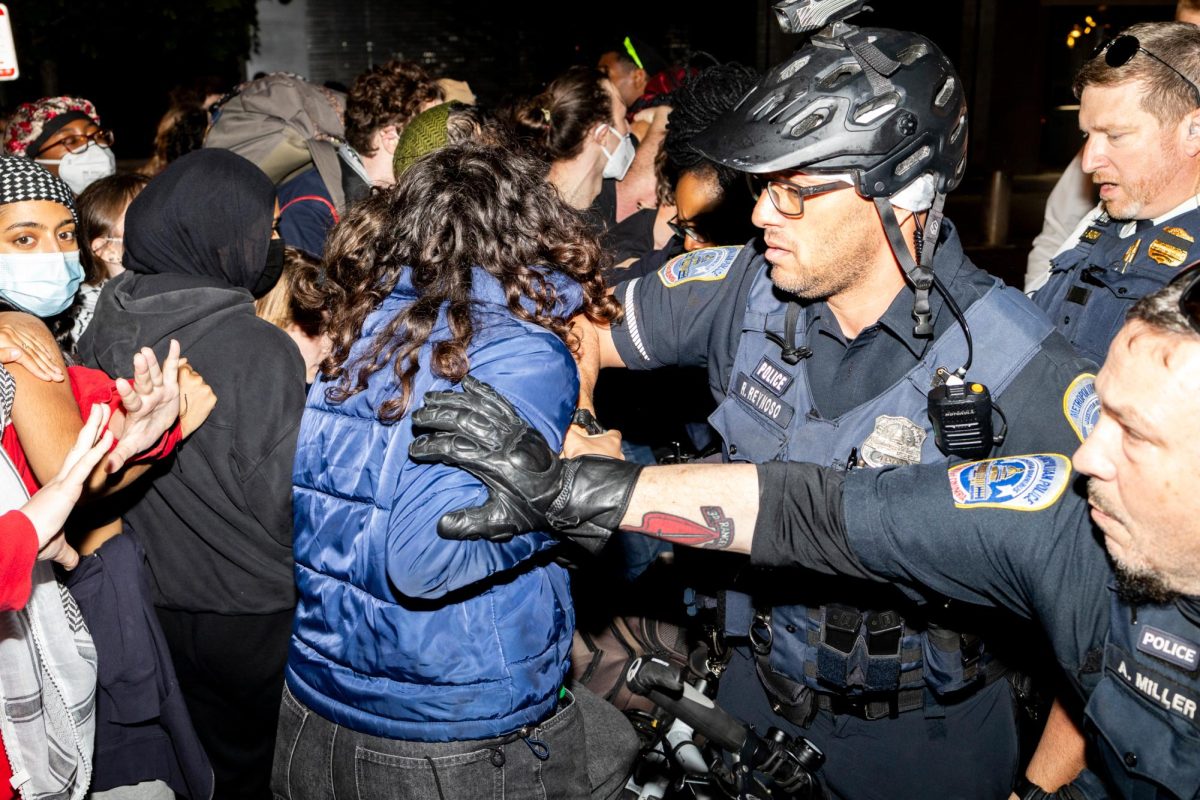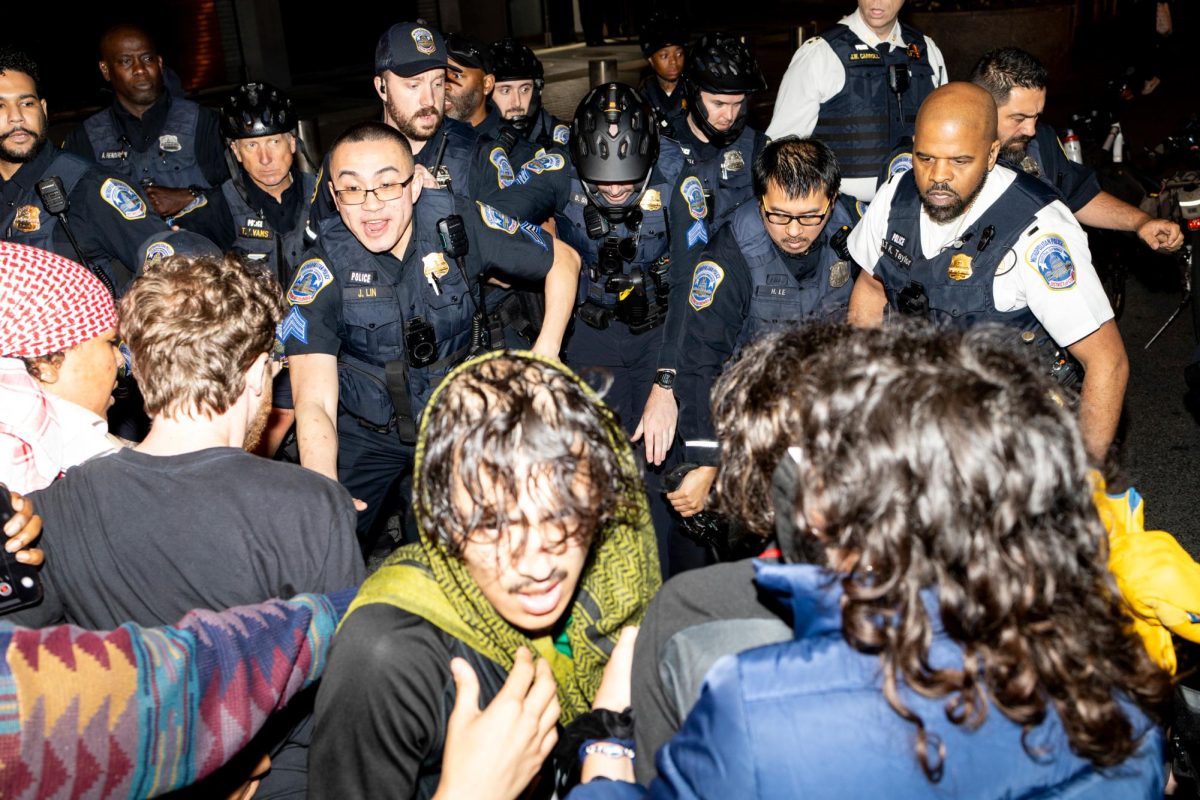University Professor Peter Caws discussed the state of American democracy and the importance of education in the modern political system at an event in the Marvin Center Wednesday.
About 200 people attended the speech, which focused largely on the differences between modern politics and the original intentions set forth by the founding fathers. Caws, a philosophy professor, said that GW students have a responsibility to constantly question their political surroundings and uphold the tenets of democracy.
Caws often referred to ancient philosophers, explaining that their theories of knowledge should be applied more often to American education and politics.
“Reflective self-knowledge, and an insatiable desire for every other kind of knowledge- those are the things we want to inculcate in our students, at every educational level,” Caws said, referring to Socrates’ beliefs about knowledge. “They also seem to be things that many people in public life conspicuously lack.”
Caws added that President Bush exceeds his power as president by claiming to defend the people rather than just the Constitution.
“Bush made his claim about protecting the people so many times,” Caws said, “.that every teacher in the United States should have pulled out the school’s copy of the Constitution and shown the students just how he was overstepping his authority.”
“That would have been democratic education in action,” added Caws.
Americans should be more critical of their government rather than becoming complacent with the current system, Caws said.
“How can we let ignorant amateurs rise to power and get away with murder?” Caws said. “How, in what we fondly call the land of the free, can we have allowed such gullibility to permeate the body politic?”
This month’s elections, added Caws, proved to be a step in the right direction.
Caws then posited several possible reforms to American politics that would better reflect democracy as outlined by the Founders. He first cited that Congressional representatives should represent merely their constituents rather than their varied, more complex interests.
“Interests are bound to clash,” said Caws, “and if representatives go to Congress carrying the economic or ideological interests of a particular group they will always necessarily betray the interests of others.”
Caws said Americans should also devote more attention to the human sciences, than the natural sciences that often dominate war and politics.
“We think.that we can solve problems in the human world by using forces in the natural world,” Caws said, referring to our use of explosive force to solve human dilemmas. “But that won’t work.And yet it is the policy we are following and seem resolved to follow for the indefinite future.”
After the lecture, Caws said in a phone interview that although GW students are politically-minded, their focus is often misguided.
“I think there is a risk that people come to GW and they get skillful at what’s going on in Washington, which is administration and lobbying,” said Caws, “I suspect that students are insufficiently challenged to be critical of the underlying issues in national policy.”
University President Stephen Joel Trachtenberg, who helped organize Thursday’s lecture, said that he wishes students would discuss and question their government more often.
“I find it astounding that our students are not talking about it more,” Trachtenberg said in reference to current political matters, “The issues are so important that not debating them is responding in silence.”







